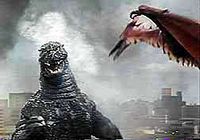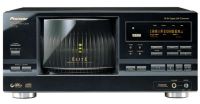In A Citable Decision, TTAB Rules On Three Discovery Motions in Pioneer v. Hitachi Slugfest
In the Board's fourth citable decision of 2005, Japanese electronics giant Hitachi came out on top in a knock-down, drag-out discovery battle with fellow Japanese electronics giant Pioneer. Pioneer Kabushiki Kaisha v. Hitachi High Technologies America, Inc., 74 USPQ2d 1672 (TTAB 2005). Applicant Hitachi seeks to register the mark SUPERSCAN ELITE for audio and video systems, but Opposer Pioneer claims likelihood of confusion with and dilution of its registered trademark ELITE for audio and video equipment.

Pioneer also claims that Hitachi lacked a bona fide intention to use the SUPERSCAN ELITE mark, and as to that issue Pioneer noticed the depositions of six Hitachi employees. Hitachi contended the these depositions were duplicative, unnecessary, and vexatious, and it moved for a protective order under FRCP 26(c)(1). The Board found good cause for and granted the motion as to three witnesses: one had no "unique or superior personal knowledge of the facts," and two had no demonstrated knowledge relevant to the issue. The other three witnesses, however, "took an active role in generating information for others regarding the use of the SUPERSCAN ELITE mark;" therefore the Board denied Hitachi's motion in part. However, it ordered that these three depositions be limited to three hours per deponent, be limited to the issue of Hitachi's bona fide intent, and be conducted consecutively over one-and-one-half days.

In the second motion, Pioneer sought sanctions in the form of a judgment, pointing to Hitachi's failure to produce witnesses for scheduled depositions after Hitachi had filed a motion for a protective order but before that motion was decided. The Board ruled that Hitachi's conduct was not sanctionable.
Thirdly, Hitachi moved to compel production of certain documents relating to a survey commissioned by Pioneer. Automatic disclosure of expert reports is not required in TTAB proceedings (compare FRCP 26), but Hitachi served a Rule 34 request for production of documents and things relied up on by Pioneer's expert. Pioneer produced some documents, but it later claimed that other documents were not in its possession, custody, or control. By then, discovery had closed and it was too late for Hitachi to subpoena the documents from the expert. The Board again sided with Hitachi:
"Here, we find that Hitachi acted reasonably in assuming that documents related to the survey Pioneer commissioned would be in Pioneer's possession or control, and that Pioneer acted unreasonably in failing to inform Hitachi that they were not, thereby depriving Hitachi of the opportunity to timely seek a subpoena and obtain the documents by other means. A party may not mislead its adversary by stating that it will produce documents, and then fail to do so and claim that the documents are not within its possession or control."
The Board ordered Pioneer to produce the requested documents, if under its control, or file a declaration "with a full explanation of its request to [the expert] for copies of the responsive documents and the rational provided by [the expert] for any refusal to provide such copies." In the latter case, the Board will then suspend proceedings to allow Hitachi time to subpoena the documents.

Finally, the Board ordered discovery re-opened for purposes of the three depositions of the Hitachi employees and the production of survey documents by Pioneer.
TTABlog comment: Why, you might ask, was this case deemed citable? I think merely because it provides an example of the Board exercising its power under FRCP 26 to control discovery. The decision doesn't seem to break any new ground, nor involve a particularly interesting factual situation. If anyone has another idea, please let me know.
Text ©John L. Welch 2005. All Rights Reserved.




0 Comments:
Post a Comment
<< Home